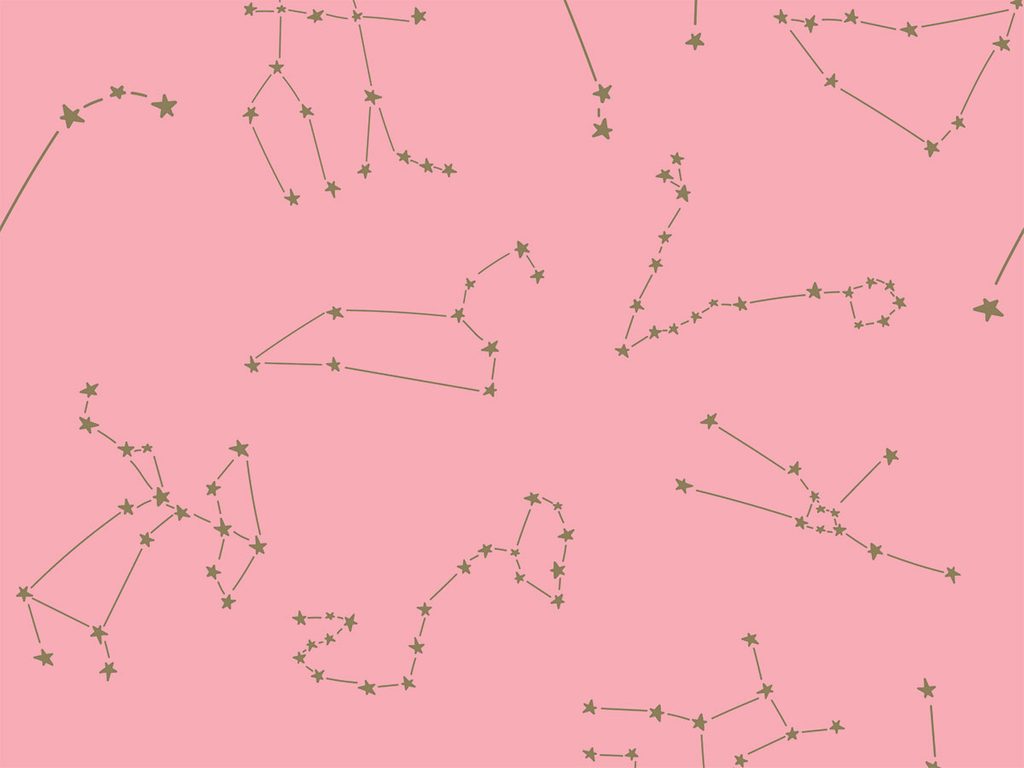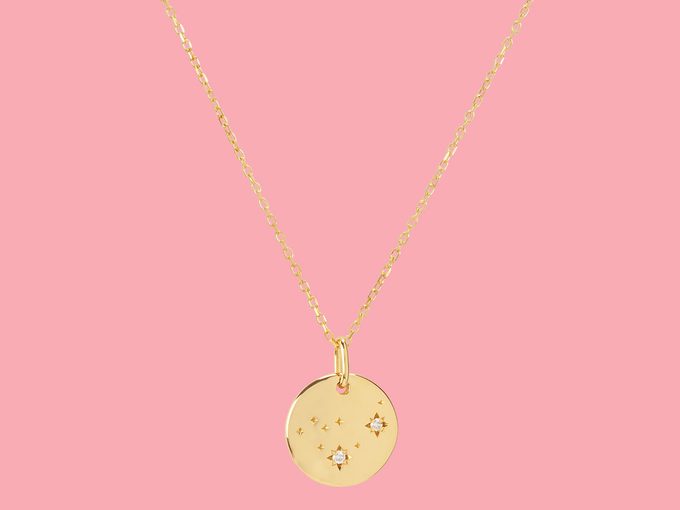Here’s What an Astrologer Has to Say About Your Obsession With Zodiac Signs

You know what the stars have in your forecast for the day, you know how your sign jives with your friends’, you know what your sign would be as a martini—but here's what else you need to know.
I rely on astrology for the same reasons some may rely on a shrink—for guidance, enlightenment, and self-knowledge. My reliance goes like this: Every Sunday night, I read my weekly horoscope. I use it as a tool that helps me mentally prepare and make goals for the week. Every morning, I read my daily horoscope. It offers a justification for my current mood and suggests what I can do to bring positive events into my life’s immediate storyline. Throughout the day, I consume zodiac-related content—like an infograph of “The Signs as Coffee” (BTW Capricorns are so not Frappuccinos)—but that’s just for pure entertainment, and occasionally, relatability. Could I be cast on TLC’s old show My Strange Addiction? Perhaps! But I’m not alone with this obsession. Zodiac signs are mentioned more than “self-care” in my millennial circle, and the popularity of zodiac-focused stories and social media accounts can’t be denied—just look at popular astrology app Co-Star’s Instagram page, which has over a million followers. So, why are we all so interested in the stars now?
Like many of my fellow millennials, I was introduced to the world of astrology by sleazy 90s rom-com characters. The classic pickup line “What’s your sign?” frequently oozed out of them, making female viewers cringe and avoid showing any interest in astrology, not to validate the efficacy of their mating tactic. Flash forward to many moons later, and I’d find myself flipping to the back of glossies to read my monthly horoscope before any other article. I’d try to plan my month around the days I’d be predicted to require alone time, need to steer clear of a moody friend, and be introduced to my soulmate.
My interest in zodiac signs has now transformed from nonexistent to private to very public. In this social media age, we have astrology apps that provide daily horoscopes and Instagram accounts that post memes about each sign’s typical behaviour, which we “like” and repost. And it doesn’t end there. Many of us (millennials) wear our signs like a nametag (or quite literally, a necklace). We share our traits in conversation and on Instagram as if they’re explanations for our behaviour, perhaps so our friends (followers) will understand us a little bit better.
I believe our interest in astrology is because we’re a generation that’s grown accustomed to google anything and everything we’re curious about. But some things are ungoogleable. So, we’ve come to rely on zodiac signs for explanations on things like people’s behaviour (“He’s ignoring me because he’s a Leo and therefore self-involved and wants me to chase him and praise him and love him”) and the reason our life is going in a certain direction (typical answer: mercury retrograde).
Is it harmless to rely on astrology for guidance and reassurance of our life choices? I reached out to astrologer Nadine Jane—who write horoscopes, creates natal charts, and works with Toronto-based fine jewellery brand Mejuri to help promote and support their popular zodiac collection—to learn what anyone who reads their horoscope needs to know.

Capricorn Necklace, $455, mejuri.com
1. Why do you think we’re all obsessed with astrology now more than ever?
I think our generation is very interested in understanding ourselves, as well as individuating ourselves. We want to be known, and to be understood, for exactly who we are. We want the world to see our quirks and our gifts.
2. What is the purpose of a horoscope?
The purpose of horoscopes is to understand where the tides of life are taking us and how they are rocking us. Horoscopes forecast whether the day, month, or year is going to be all fun and games, or if it is going to be testing us with its ups and downs. It’s a bit like checking the weather, but the weather of your internal and external life.
3. How can you benefit from reading your horoscope every day?
I love the idea that it reminds you that you’re “on schedule.” If you’re feeling tired and lethargic, for example, astrology can affirm for you that it might be a good day to take it easy. Daily horoscopes can offer some peace of mind about where you are that day.
4. Why is each sign characterized in a different way, and how accurate do you think that characterization is for each person?
It’s a bit like taking a personality test—you are generalizing about tendencies this certain subset of the population may have. Each sign has its own unique gifts (as well as shortcomings!) and you see that mapped to the individual. However, since the birth chart shows the complexity of the individual, one should never get too hung up on the characteristics of just one sign.
5. What does it mean to have a sun, rising and moon sign? And does that mean you should read three different horoscopes?
They describe the different facets of your personality—your ego (sun sign), your internal world (moon sign), and your external persona (rising sign). Human beings are far more complex than just one sign, so the different planets in astrology explain that.
And no, you shouldn’t be reading three different horoscopes. You should be reading your Rising Sign first and foremost.
6. How can you use a daily horoscope or your sign’s traditional characteristics to tackle tasks, improve relationships, and live a more fulfilling life in general?
Self-reflection is the key to self-actualization. If you know what your strengths are you can maximize them. If you know your weaknesses you can work on your blind spots. This allows you to come into any situation, personal or professional, and know exactly what you can offer the room and what you will need from them in return.
7. What do you tell skeptics?
First and foremost—I think a healthy amount of skepticism towards anything is important. And if you are skeptical but curious, I would ask you to think about the Moon and how she affects the tides as well as our crops. Her gravitation pull, or tidal force, causes the Earth’s water to bulge out on the side closest to the moon and the side farthest from the moon. We as humans are 60 percent water, so perhaps there’s a chance she’s affecting our internal tides too.
Next, learn how journal writing can make you healthier.




